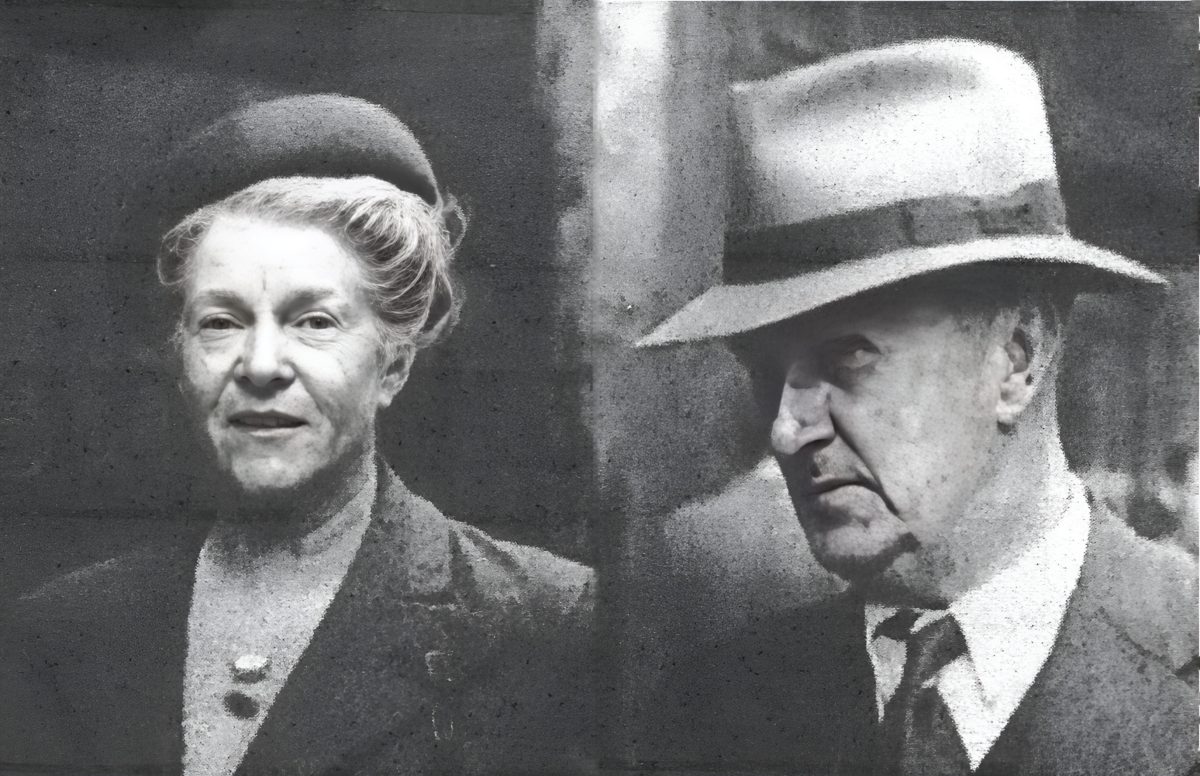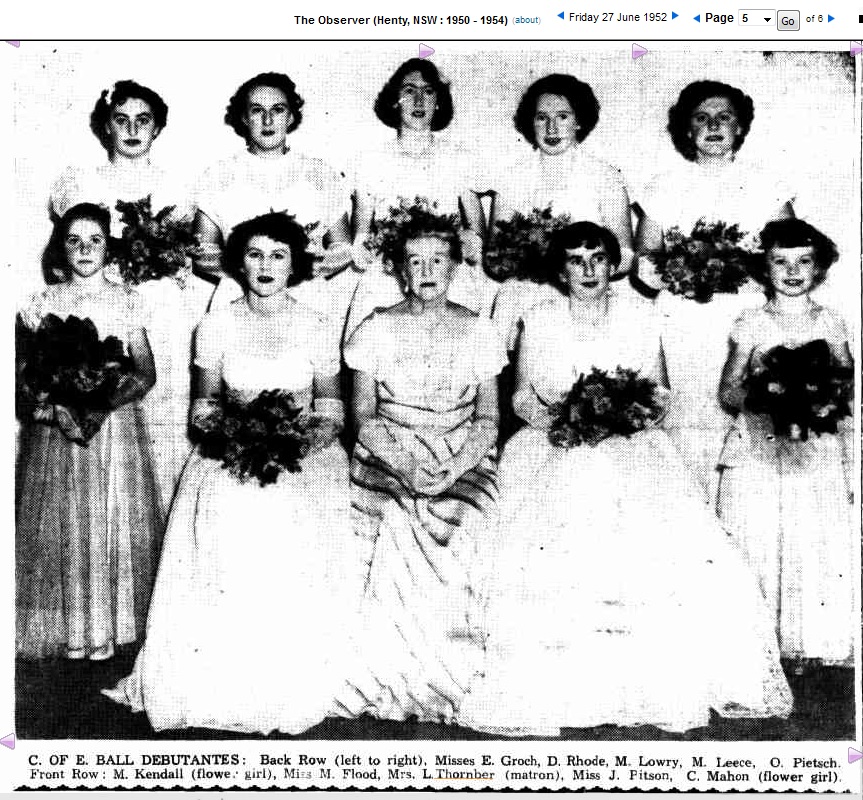
Armandine and Laurie Thornber. Photo: Supplied.
In 1886 when Armandine (Armie) Garnay was not yet two years old her father was convicted of printing and passing forged bank notes and deported to New Caledonia.
He had left his job as a tailor at Peapes gentlemen’s outfitters in George Street, Sydney telling his employer he was coming into money.
In a manner of speaking, he was. He had set up a printing press in the Camperdown terrace he shared with his wife Pauline and their infant daughter and begun producing ‘spurious notes of the Commercial Bank’. On 23 November 1886 he was arrested in the Sydney Domain for passing 11 of these.
A Swiss national who had previously been a convict in Noumea, Garnay’s extradition was automatic upon his conviction. None of this was ever told to Armie or her sister, Florence, who came along just two months later. They believed their father was a professional photographer who died on assignment overseas.
Growing up in genteel poverty with her sister, mother, widowed aunt and cousin, their expenses met by the women’s sewing, Armie was not burdened with knowing she was a felon’s daughter.
She and her sister did well at school and Florence went on to have a career at the GPO.
What Armie did for a living is unknown, but in 1911 she made a good marriage to Laurence (Laurie) Thornber from a respected South Australian family of educators and bankers.
They welcomed a daughter, Norma, in 1912. The Thornber’s connection with the Riverina began in 1923 when Laurie was made accountant at the Wagga Wagga branch of the Union Bank, a handsome building that still stands at the corner of Tompson and Fitzmaurice streets.
The Thornbers quickly became well liked, active members of Wagga society, joining the golf club and playing bowls and croquet. Armie joined the Shakespeare Society (Wagga’s is the oldest continuously operating society of its kind in the world), serving as treasurer.
The Wagga Wagga Daily Express reported a meeting she hosted at her home where excerpts from The Tempest and CJ Denis’s The Kid were read.
In 1926 Laurie was promoted to manager of the Henty branch of the Union Bank and the family relocated. The Shakespeare Club farewelled Armie with a gift of two brass bowls and hoped she would return for meetings whenever it was convenient to “take a run from Henty”.
In Henty the Thornbers continued to enjoy the respect and affection of the community where both became life members of the Henty golf and bowling clubs. Laurie’s role came with an elegant residence attached to the bank premises in Sladen Street in the town centre.
Their home was often the location of meetings of the Country Women’s Association (CWA); Armie was the founding treasurer and then served as Group Handicrafts Officer from 1941 to 1957.
She represented the Riverina at CWA conferences. She gave classes in flower arrangement, weaving, spinning and dressmaking. She judged textile works at agricultural shows across the Riverina and at Sydney’s Royal Easter Show and won prizes there and at the State Handicraft Exhibition for her wool spinning.
The Henty CWA branch raised funds for many good causes including the Girl Guides Association and Red Cross and during World War II knitted camouflage nets and socks for the troops.
In 1940 the Thornber’s only child, daughter Norma, married Dr Bryce Cooper of Quirindi at St John’s Presbyterian church, Henty. It was a stylish affair with the “younger set” of the CWA decorating the church beautifully and the bride and wedding party fashionably turned out. Armie hosted the reception sporting a “frock of blue suede crepe and a turban of daphne”.
When Laurie retired from the bank in 1945 special mention was made at a function in the Thornber’s honour of the attention Armie had paid to women’s activities in Henty and how she had been generous in helping out-of-town employees settle in at the Union Bank.

Armie Thornber (centre) was about 69 when she served as a matron of honour introducing debutantes in the Riverina. Photo: Supplied.
Throughout the 1950s Armie became more active in judging and championing regional handicrafts, including crochet, knitting and fabric upholstery at agricultural shows in Berrigan, Yerong Creek and Wagga.
In 1952 she served as matron of honour training and presenting young women debutantes for the Church of England, Catholic and the Scotch winter balls and was also a judge at the Royal Easter Show.
She is quoted as saying, “I know of many women in my own district particularly whose work could stand up to any I have seen here … some work I have seen at country shows is of equal quality to any at the Royal”.
Armie and Laurie remained in Henty actively participating in community life until the mid-1960s when they moved to Tamworth to be near their daughter’s family. They died there two months apart in 1973.







